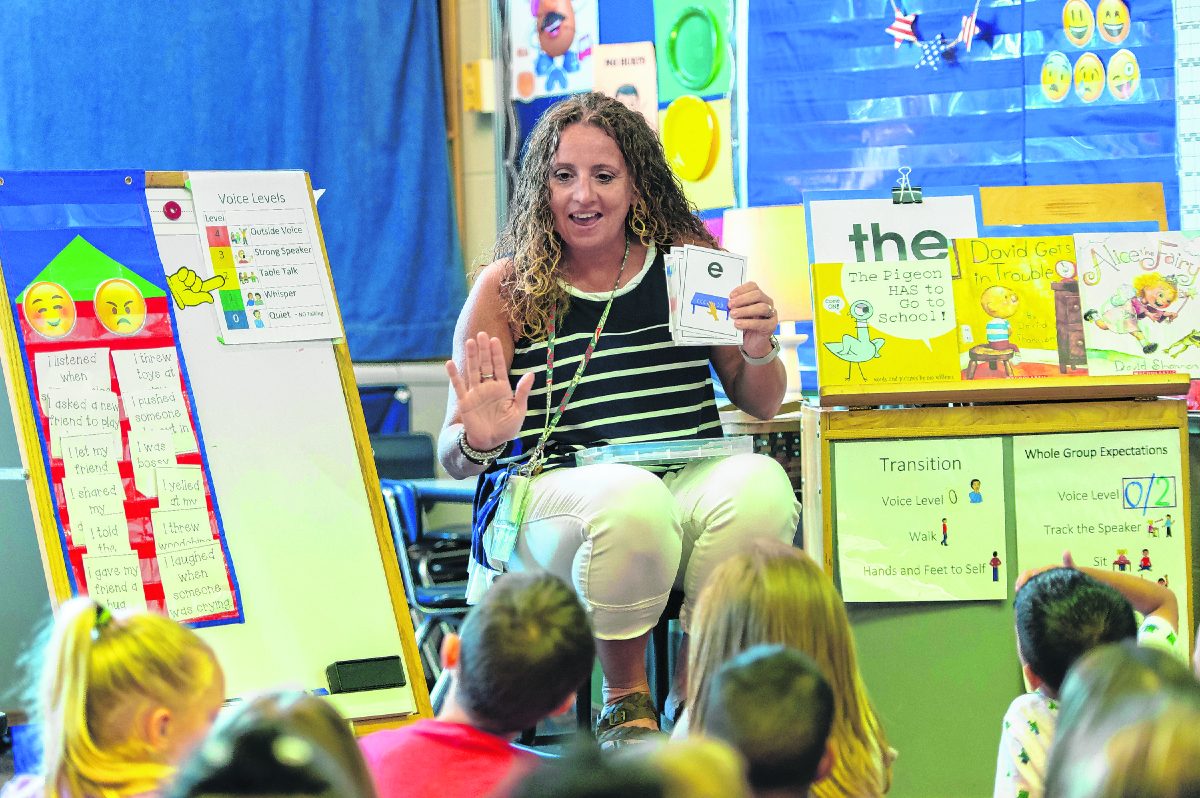For the past three years, Greenwood Community Schools has seen early detection as the biggest key in helping children who suffer from dyslexia, and now all public schools are required to identify and assist those students.
The law now requires every school district to have at least one reading specialist trained in assisting students with dyslexia. The law also requires schools to screen students for reading-based disabilities, and provide help through intervention for students who are or may be at risk of being identified as dyslexic, according to an Indiana Senate Republicans news release.
Greenwood schools has been using the a method to train its teachers to assist students from kindergarten through second grade, with the intention of making sure they are ready for the IREAD exam in third grade, said Lisa Harkness, the district’s curriculum director and its designated reading specialist.
The method helps children develop literacy skills by breaking down why letters and words sound the way they do.
[sc:text-divider text-divider-title=”Story continues below gallery” ]Click here to purchase photos from this gallery
“It’s a specialized way to teach reading that has been very dynamic and helpful for students who have dyslexia. It really is trying to make everything more dynamic. It’s a multi-sensory approach to teaching. It’s visual and auditory but it’s also putting some motion to it,” Harkness said.
“While it’s good for all kids to learn phonetic awareness, it’s essential for kids who may be dyslexic.”
The method incorporates motion, for example, by having children trace letters in the air with their hands, Harkness said.
Clark-Pleasant and Indian Creek schools also use the same approach to train teachers. Indian Creek schools is planning to assess students for dyslexia in the middle and high school as well, Assistant Superintendent Andy Cline said.
In order to determine if a child has a grasp on key aspects of literacy or is at risk for dyslexia, schools must test students on phonological and phonemic awareness, sound symbol recognition, alphabet knowledge, decoding skills, rapid naming and encoding skills, according to Indiana Department of Education documents.
Franklin Community Schools has screened its students for dyslexia for more than a decade, but the new requirements will shift administrators’ and teachers’ focus to the results in individual areas rather than the overall score, said Dylan Purlee, principal of Needham Elementary School who will also serve as dyslexia coordinator for Franklin schools.
By focusing on individual areas of the exam a child might be struggling with, such as knowing which letters make certain sounds, schools can do further testing to see if the struggle is consistent.
That helps a school identify whether a child has a learning disability related to reading, although school psychologists cannot diagnose a student with dyslexia. If a child is diagnosed with a reading-based learning disability, the school psychologist would meet with school administrators to determine if an individualized education plan would best meet the student’s needs, Purlee said.
About five to 10 percent of students at Franklin schools have a reading disability, he said.
"This law is just making us accountable for doing this," Purlee said. "Great schools are already doing this. There’s many components of the law, but it’s drilling down understanding of specific skills."
While Johnson County schools will focus the bulk of its reading intervention and screening on younger grades, Clark-Pleasant schools would still respond to parent concerns about older children and accommodate children who struggle with dyslexia in the upper grades, said Kimberly Fifer, assistant superintendent of secondary education.
“If a parent has a concern at a later grade, we would open our resources to that and respond to their concern,” Fifer said. “We’re getting new training on an adaptive reading curriculum.”
Assisting students who may struggle with dyslexia is key to making sure students are prepared to lead successful lives, said Adam Baker, a spokesperson for the Indiana Department of Education.
“As the state’s education department, our goal is to provide expertise and guidance to educators so they may do what is best for all students in Indiana to become successful adults,” Baker said in an email. “This law ensures districts have the necessary staff, knowledge, tools and instructional practices to work with students classified as struggling readers to achieve this success.”





